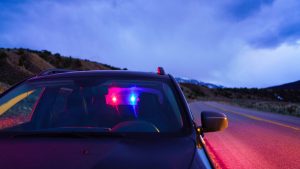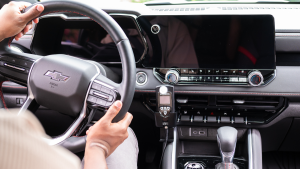The drunk driving laws make it a criminal offense to drive a vehicle while under the influence of alcohol (DUI) or while having a blood-alcohol concentration (BAC) of .08% or higher. It is not, however, a criminal offense to be under the influence or to have a BAC of .08% while taking a breath test in a police station an hour or two AFTER driving. So how does the prosecution prove what the BAC was when the defendant was driving? It’s a problem.
You can try to guess what the BAC was in a DUI case by projecting backwards, using average alcohol absorption and elimination rates, but it’s only a very inaccurate guess. The process is called “retrograde extrapolation” — a fancy name for trying to guess backwards. The problem is that everyone has a different metabolism, and even a given person will metabolize alcohol at different rates depending on many variables.
In one study, for example, researchers found a wide range of matabolism rates: some individuals can absorb alcohol and reach peak blood-alcohol levels ten times faster than others. Dubowski, “Absorption, Distribution and Elimination of Alcohol: Highway Safety Aspects”, Journal on Studies of Alcohol (July 1985).
As a result, scientists have concluded that the practice of estimating earlier BAC levels in DUI cases is highly inaccurate and should be discouraged. From the recognized expert in the field, Professor Kurt Dubowski of the University of Oklahoma:
“It is unusual for enough reliable information to be available in a given case to permit a meaningful and fair value to be obtained by retrograde extrapolation. If attempted, it must be based on assumptions of uncertain validity, or the answer must be given in terms of a range of possible values so wide that it is rarely of any use. If retrograde extrapolation of a blood concentration is based on a breath analysis the difficulty is compounded.” 21(1) Journal of Forensic Sciences 9 (Jan. 1976).
So, Mr. Prosecutor, you’ve got a Breathalyzer reading of .10% an hour or two after the driving and the scientists say you can’t accurately project that BAC back to the time of driving: if the BAC was rising, it could have been a .07% or even lower. That kind of leaves you in a pickle. What do you do? Simple: You just get the legislature to pass a law saying that the blood-alcohol when tested is the same as it was when driving.
What? But that’s not true: BAC constantly changes as alcohol is metabolized. How can we legally presume what we know is not true? Well, yes, but we can never really know, can we? And it sure makes the prosecutor’s job easier, doesn’t it? Let the defendant try to prove what his BAC was an hour or two earlier.
That’s right: Most states now have laws saying your BAC was the same 3 hours earlier — unless you can prove it wasn’t! Typical is California’s law: “It is a rebuttable presumption that the person had 0.08% or more, by weight, of alcohol in his or her blood at the time of driving the vehicle if the person had 0.08 percent, by weight, of alcohol in his or her blood at the time of performance of a chemical test within three hours after the driving”. Vehicle Code sec. 23152(b).
Wait a minute….What about the State having the “burden of proof” — proof beyond a reasonable doubt? How can the law simply presume guilt and force the defendant to disprove it? What about the “presumption of innocence”?
Details, details….The important thing is to get those drunk driver off the roads, right?
If you need to consult with a Los Angeles DUI lawyer, Orange County DUI attorney or Riverside DUI lawyer, contact The Law Offices of Lawrence Taylor at 888-777-3449. With offices in Los Angeles, Orange County, Riverside, and north San Diego County, the firm has limited its practice to DUI defense exclusively for 33 years and is consistently top-rated in surveys of Southern California attorneys, professional rating organizations and consumers.

